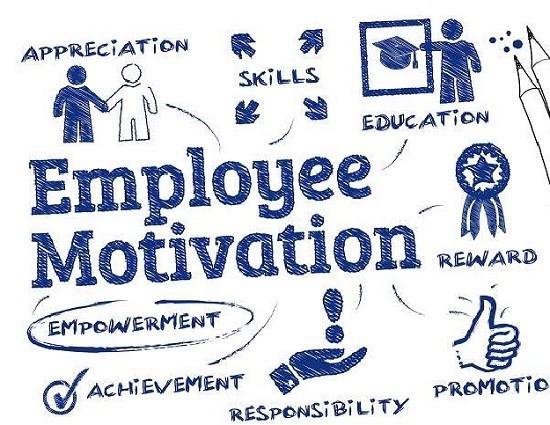
VISA Recruiting and Hiring
VISA Recruiting and Hiring Challenges
The H-1B Visa recruiting program is a popular option for companies in the United States seeking to hire skilled foreign workers. Under the VISA Recruiting program, employers can sponsor foreign workers for temporary employment in the United States in certain specialized occupations, such as computer programming, engineering, and science. However, the process of VISA Recruiting and hiring H-1B workers can be complex, and there are several important factors that employers should keep in mind.
First, employers must ensure that the H-1B position they are seeking to fill qualifies as a specialty occupation. This typically requires that the position require a minimum of a bachelor’s degree or higher in a specific field of study, and that the degree is normally required for the position in question. Employers must also ensure that they are offering the prevailing wage for the position, which is typically based on the geographic location of the job and the experience level of the worker.
Once the employer has determined that the position qualifies as a specialty occupation and that they are offering the prevailing wage, they can begin the process of recruiting and hiring H-1B workers. VISA Recruiting typically involves posting the job on various job boards and websites, as well as conducting outreach to universities and professional organizations. Employers may also need to conduct recruitment efforts aimed at minority and female candidates in order to comply with federal equal employment opportunity laws.
Once the recruitment period has ended, employers must select the most qualified candidates and file an H-1B visa petition on their behalf. This involves submitting extensive documentation, including the worker’s educational credentials, job offer letter, and evidence that the employer is offering the prevailing wage. Employers must also pay various fees associated with the H-1B visa process, including a filing fee and a training fee.
Finally, once the H-1B petition has been approved by U.S. Citizenship and Immigration Services (USCIS), the worker can begin employment in the United States. However, it is important to note that H-1B workers are temporary employees and must maintain valid legal status in order to remain in the United States. Employers are responsible for ensuring that their H-1B workers remain in compliance with all applicable immigration laws and regulations.
The H-1B VISA Recruiting program can be a valuable tool for employers seeking to hire skilled foreign workers. However, the process of recruiting and hiring H-1B workers can be complex, and employers must be careful to comply with all applicable laws and regulations. By following the guidelines outlined above, employers can successfully navigate the H-1B visa process and attract talented foreign workers to their organization.
Top 5 Challenges for VISA Recruiting and Hiring
Securing employment in a foreign country can be an exciting opportunity for candidates seeking professional growth and new experiences. However, for candidates requiring work visa sponsorship in the United States, the journey comes with a unique set of challenges.
- Limited Job Opportunities:
One of the primary challenges for candidates requiring work visa sponsorship in the USA is the limited number of job opportunities that offer sponsorship. Many employers prefer to hire candidates who are already authorized to work in the country to avoid the complexities and expenses associated with visa sponsorship. Consequently, candidates often face a more competitive job market, with a narrower range of companies willing to provide sponsorship.
- Complex Visa Application Processes:
The process of obtaining a work visa in the USA can be complex and time-consuming. Candidates must navigate through various visa categories, such as the H-1B visa for skilled workers or the O-1 visa for individuals with extraordinary abilities. These visa applications require extensive documentation, including educational qualifications, work experience, job offers, and employer sponsorship. Navigating the intricate visa application processes can be overwhelming and may require the assistance of an immigration attorney.
- Uncertain Timelines and Limited Visas:
Work visa sponsorship in the USA is subject to annual quotas and limited availability. The H-1B visa, for example, has an annual cap, and the demand often exceeds the number of available visas. This uncertainty can pose challenges for candidates, as they may need to wait for the next application cycle, potentially delaying their employment plans. Additionally, visa processing times can be unpredictable, causing further uncertainty and potential disruptions to candidates’ career paths.
- Employer Obligations and Costs for VISA Recruiting:
Sponsoring a work visa involves significant obligations and costs for employers. Employers must comply with legal requirements, file necessary documentation, and demonstrate that they are unable to find a qualified US citizen or permanent resident to fill the position. The financial costs associated with visa sponsorship, including legal fees and government filing fees, can be substantial. These factors may deter some employers from considering candidates requiring work visa sponsorship, further limiting job opportunities.
- Limited Flexibility and Job Mobility for VISA Recruiting:
Candidates requiring work visa sponsorship in the USA often face restrictions on job mobility and flexibility. Their work visas are typically tied to a specific employer and position, making it challenging to switch jobs or pursue new opportunities without going through the visa transfer or renewal processes. This limitation can impact candidates’ career progression, as they may need to prioritize job stability over exploring new roles or organizations.
Candidates requiring work visa sponsorship in the USA face a range of challenges as they navigate the intricate process of obtaining employment authorization. Limited job opportunities, complex visa application processes, uncertain timelines, employer obligations, and restricted job mobility are some of the hurdles they must overcome. However, with persistence, careful planning, and support from immigration professionals, candidates can successfully navigate these challenges and find rewarding employment opportunities in the USA. As the global workforce continues to diversify, it is crucial for employers and policymakers to address these challenges and promote a more inclusive and accessible environment for candidates requiring work visa sponsorship.






Responses